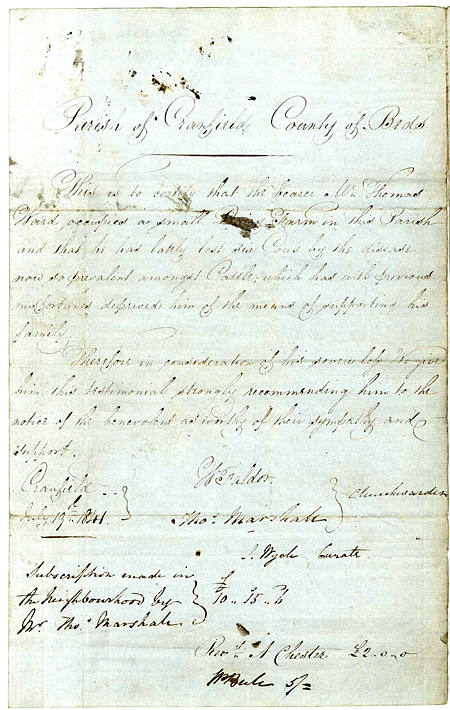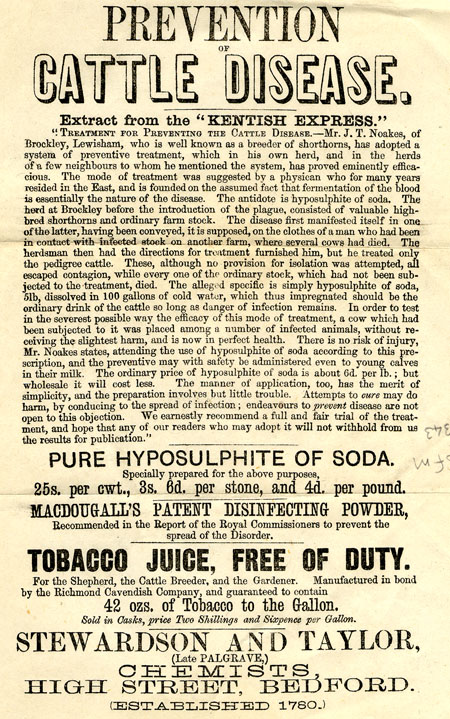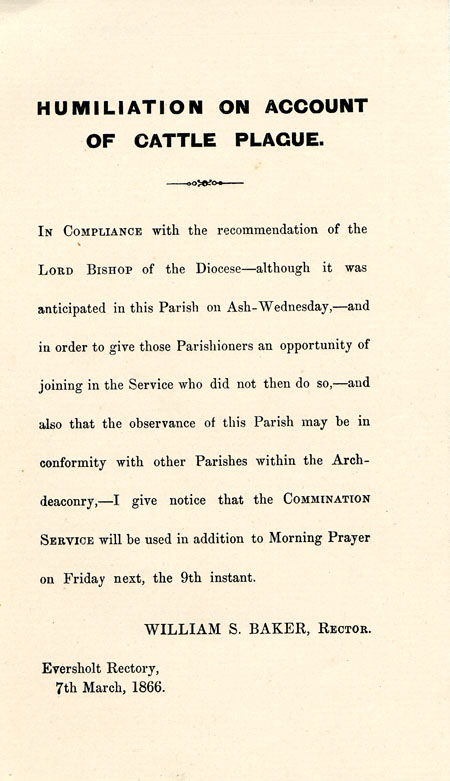Cattle Plague
This month we highlight the case of Daniel William Browning who in 1841 was tried for obtaining money under false pretences. Several witnesses were called to give evidence at the trial which took place on the 13th of August 1841.
In August 1841, Browning, using the name Thomas Ward twice attempted to obtain money from persons by claiming he had been hard done by.
On the 5th of August, Browning went to the house of Henry Goude claiming that six cows on the farm he owned in Cranfield had died of disease. Browning obtained five shillings from Goude, who gave Browning the money, “on the faith of his statement being true”.

The petition about the cows (above) was supported by the churchwardens of Cranfield. It shows all the signs of having been carried around in Browning’s pocket [ref: QSR1841/4/5/22a].
Browning, again going by the name of Thomas Ward, was arrested on the 7th of August in the Hertfordshire town of St Albans. Joseph Douglas, a policeman, tells of how he was called to the Red Lion Public House after Browning had claimed that he had been robbed of £31 by a “girl of the town”. However Douglas had doubts over the authenticity of the accusation, as he had unearthed two petitions for Ward, in which the addresses were different - one stating his address as Cranfield Bedfordshire and the other as Lilley in Hertfordshire. Acting on his belief that Browning was an imposter, Douglas took him into custody for questioning, where Browning admitted to being in the possession of the money.
Browning told Joseph Douglas that he ‘had been in the habit of travelling with carpet rugs’ and that ‘he was a dealer in straw plait,’ however, there is not much further information on Daniel William Browning, or Thomas Ward. Our Gaol database shows that at the time of his arrest he was 31 years of age and was 5ft 4 ¾ with brown hair. Browning was found guilty and on the 13th of August 1841 sentenced to six months hard labour in the Bedford new House of Correction.
Although there is no evidence to support Browning’s claim that he had lost cows due to a cattle disease, or whether he even owned cattle at all, the story does tie in to several other documents we have on cattle disease round this period that could have made his story more believable.

Flyer containing an article advising on the prevention of cattle disease [ref: SFM3/343]

From the Rector of Eversholt, William S. Baker, stating that there will be prayers held on the matter of a cattle plague that was affecting the area at the time [ref: P42/28/3/44].
These two documents highlight the problem of cattle plagues in the mid 19th Century in Bedfordshire and this could be the reason Browning used the subject of cattle plagues to attempt to extract money from Henry Goude and the commonness of the issue could also be the reason to why Goude readily accepted Browning’s story and parted with his money.